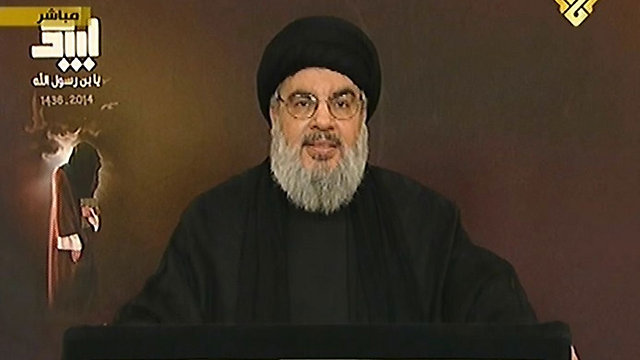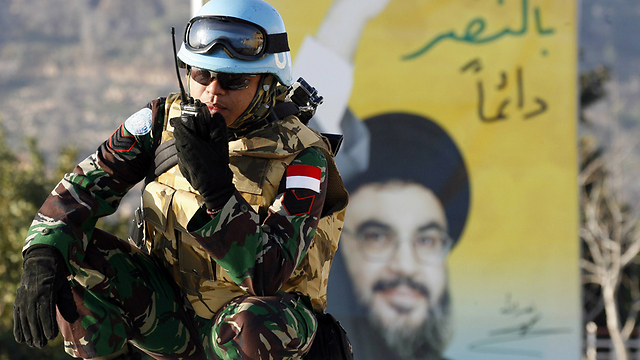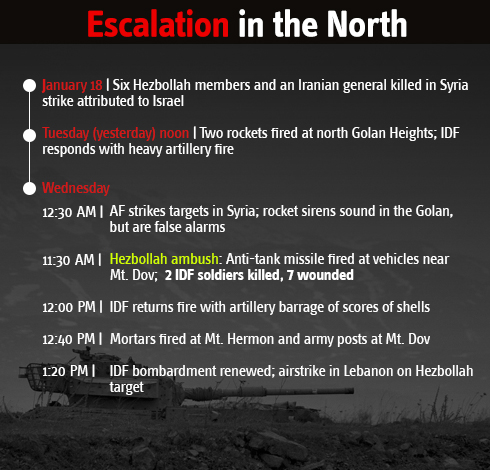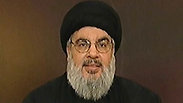
Hezbollah chief Hassan Nasrallah responded Friday for the first time since his group killed two Israeli soldiers in response to an end of January attack in Syria attributed to Israel which saw a number of the group's fighters killed alongside an Iranian general.
"Our biggest victory is that Israel feared Hezbollah's response," he said in a televised address Friday after a salvo of Hezbollah guided missiles killed Major Yochai Kalangel and Staff-Sgt. Dor Nini as they rode in unarmored vehicles along the Israeli-Lebanese border on Wednesday. Israel then launched an artillery and air barrage, and a Spanish peacekeeper was killed.
"If Israel thinks the resistance is detered and is scared of a conflict, I tell you now after the attack in Qunetra, we are not afraid of war. We will not think twice about confronting the enemy and we will do so if he forces us.
“We dont want war but we dont fear it,” he said, “the resistance in Lebanon is not concerned with rules of engagement. It is our legitimate and legal right to fight aggression, wherever and whenever it may occur."
Related stories:
- Israel confirms Hezbollah not interested in escalation
- IDF hits Hezbollah in Lebanon after group claims responsibility for attack
- Iran confirms general killed in Syria strike attributed to Israel
According to him, the Israeli attack in Qunetra – a Syrian city straddling its war-torn border with Lebanon – shows the “fusion of Lebanese-Iranian blood on Syrian territory, and reflects the unity of the cause and the unity of the fate of these countries," Nassrallah said, admitting Iran was supporting his terror groups operations in Syria.
When blood unites Palestine, Lebanon, Syria and Iran, then we will move towards an era of victory, Nasrallah added.
"It is possible Israel thought Hezbollah would contain this event and will not admit it was hit – but (our activities in Syria) are not something we hide. We are proud of it and our shahids… and I think this was Israel's first surprise, that Hezbollah admitted the event." Israel has not officially taken responsibility for the attack.
Hezbollah is fighting alongside forces loyal to Syrian President Bashar Assad against rebels trying to oust him. The Syrian rebels fighting Hezbollah in the Golan area are predominantly affiliated with the Al Nusra Front – the Syrian offshoot of al Qaeda – which Nasrallah claimed Israel supports.
Nasrallah praised those killed in alleged Israeli attack as 'martyrs' and fired back at Israel for "supporting" Syrian rebels in the area.
"There are thousands of (Syrian al Qaeda) militia forces along the Golan border, they have tanks, arms, rockets, fortifications and more.
"Netanyahu and Ya'alon are not concerned by their presence, because they support them, they supply them with air coverage and open the border for their wounded. Israel is not concerned by them, but is of two civilian cars which did not have any arms on them," the Hezbollah chief asked rhetorically, referencing the January 18st attack that killed several Hezbollah members, including a senior operative, along with an Iranian general.
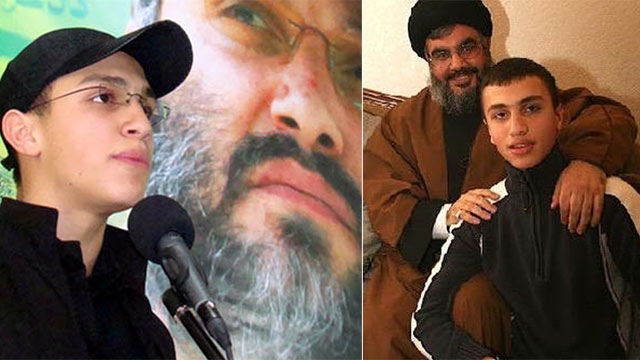
Israel said it had received a message from UNIFIL, the UN peacekeeping force in Lebanon, that Hezbollah was not interested in further escalation Thursday.
In Beirut, a Lebanese source briefed on the situation told Reuters that Israel informed Hezbollah via UNIFIL "that it will make do with what happened yesterday and it does not want the battle to expand".
Asked on Israel's Army Radio whether Hezbollah had sought to de-escalate, Defense Minister Moshe Yaalon said: "There are lines of coordination between us and Lebanon via UNIFIL and such a message was indeed received from Lebanon."
Israel has not formally acknowledged carrying out the air strike, but Yaalon said it had set back Hezbollah and Iranian efforts to "open a new front" against Israel from the Syrian Golan Heights.
UNIFIL officials did not confirm or deny passing messages between Israel and Hezbollah.
UNIFIL says it has no contacts with Hezbollah but its head of mission was in close contact with Israel and the Lebanese government throughout the day. The channel of communication "is still open now and it is always open in order to ask the parties to exercise maximum restraint", spokesman Andrea Tenenti said.
Reuters contributed to this report














